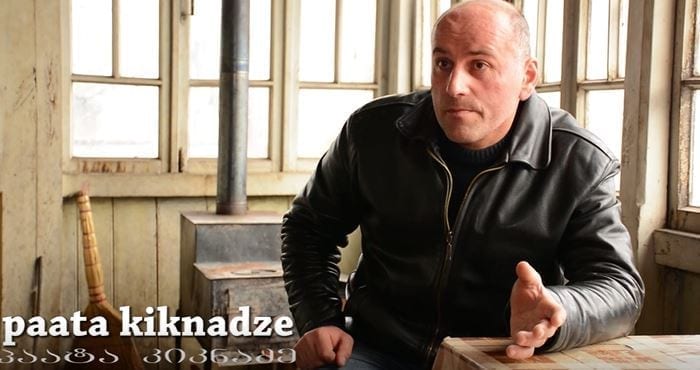Nearly 200 railway construction workers in three villages in west Georgia won significant health and safety gains through two agreements with state-owned company China Railway 23rd Bureau Group, according to interviews with several workers in a new Georgian-language video. The company is under contract with the government to modernize Georgia’s Tbilisi-Rikoti railway route, including construction of seven tunnels.
Before the agreements took effect, workers at the construction site in Zvare referred to their section of the project as, “the hell tunnel.” In interviews, they describe how company managers ordered them to enter the tunnel before smoke and dust had cleared from rock-clearing blasts, and how they had not received protective masks and clothing, clean water on the job or paid sick leave.
“There was so much smoke that you cannot see a person in a [three foot] radius, but the attitude of employers is, ’work or go home,’”says one Zvare tunnel worker. “Working there [was] dangerous for life,” confirms Vitali Giorgadze, president of Georgia’s national independent union for railway workers, GRWNTU.
After the agreements took effect, workers reported significant health and safety improvements. “Current conditions are much better than they were before the trade union,” says welder Paata Kiknadze. The agreements committed the company to union-run health and safety monitoring and reporting systems at Zvare, Bezhatubani and Dzirula construction sites, which workers say is key to maintaining the health and safety measures.
With GRWNTU’s assistance, the settlements were reached last fall after workers walked off the job, first in Zvare and later at other construction sites along the route, to protest the firing of two Zvare workers who refused to enter a tunnel filled with scorching dust. Workers walked out again in November, after company representatives allegedly beat five workers in Zvare for, alleges company representatives, gathering firewood on company property.
Assisted by GRWNTU, workers at the Zvare, Bezhatubani and Dzirula construction sites organized into bargaining units, elected leaders and petitioned the Georgian government for assistance to ensure the company ceased violating Georgia labor law. Workers held protest rallies in September in the Georgian capital, Tbilisi, outside the offices of the Georgian Railway department and the Ministry of Labor, Health and Social Affairs of Georgia.
The agreements include additional benefits beyond health and safety improvements. “Before the strike, they did not have the right to [overtime pay and paid] leave,” says Paata Ninua, GRWNTU chief of staff and safety specialist trained under Solidarity Center’s Georgia program, funded by the U.S. Department of Labor. After the strike and the negotiations that followed, Ninua says, these problems were solved.

